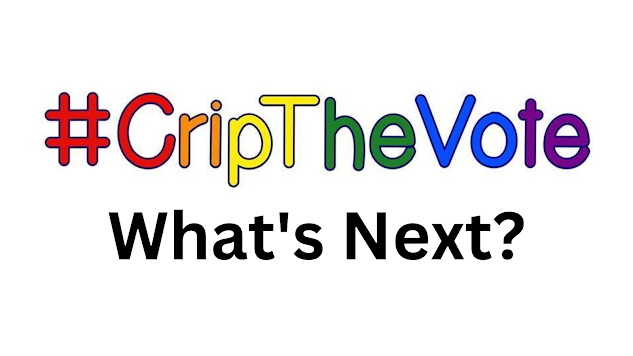Our partner in #CripTheVote (CTV), Alice Wong, died on Friday November 14th. Alice was our friend and collaborator for the last ten years. When we first began discussing the project that became #CripTheVote. It was Alice who coined the hashtag. She was also the one who at every stage kept us focused on adhering to the principles of Disability Justice. It was something she brought to all of her work and without it we can honestly say that #CripTheVote would not have had half the impact that it did.
While we all built #CripTheVote, CTV might not have ever happened without Alice’s earlier work. The power and impact of The Disability Visibility Project (DVP) as part of NPR’s Storycorps and also on Alice’s own website, book, and podcast can not be overstated. No media project before or since has done more to show the breadth of the Disability Community or has done more to illustrate that all issues are disability issues. DVP made it clear that the Disability Community was a part of every community. In showing us this, Alice showed us that supporting disabled people meant challenging oppression everywhere.
Alice taught us to lean into our discomfort with issues. She was unflinching in asking the Disability Community to examine its own biases and flaws. She asked us to understand and challenge our own ableism, racism, sexism, homophobia, transphobia, ageism and anything else that might be standing in the way of justice. She led by example, frequently questioning her own assumptions to assess the best ways to disrupt oppression. Alice called herself a disabled oracle. To her this was about telling the truths people did not want to hear in service of Disability Justice.
Alice also reminded us of the importance of keeping an eye on the past to learn from the experience and lessons of our disabled ancestors. Alice often drew on the wisdom of Harriet Mcbride Johnson, Stacey Milburn, Ing Wong Ward, Kitay Davidson and others drawing connections with past to inform the future she aspired to.
The future Alice anticipated is one we should all be sorry to miss. It is a future she mapped out with an imagined obituary in her memoir “Year of the Tiger”. We will particularly miss getting to read the books she would publish as Editor in Chief of the first Disability Centered imprint for a major US publisher, and the musical power of her punk band “Rage Against the Ableism”.
As two white men we are also conscious Alice’s frequent refrain urging white people to “shut the fuck up” and listen – also the title of one of Rage Against the Ableism’s biggest hits. So let us finish by saying we will miss you Alice and we are forever grateful, for your wisdom, your rage, your friendship and everything you did to build and strengthen our community. We’ll try and follow your example and create some “good shit” as well.
Gregg Beratan and Andrew Pulrang




